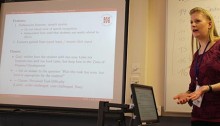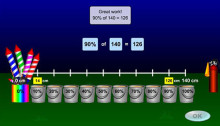Feedback from Multimodal Interactions in Learning Management Systems
iTalk2Learn partner, University of Hildesheim, organised a Workshop on Feedback from Multimodal Interactions in Learning Management Systems at the 7th International Conference on Educational Data Mining A workshop on Feedback from Multimodal Interactions in Learning Management Systems took place at the 7th International Conference on Educational Data Mining in London on 4th July. The workshop was organised by iTalk2Learn partner, University of Hildesheim.…


